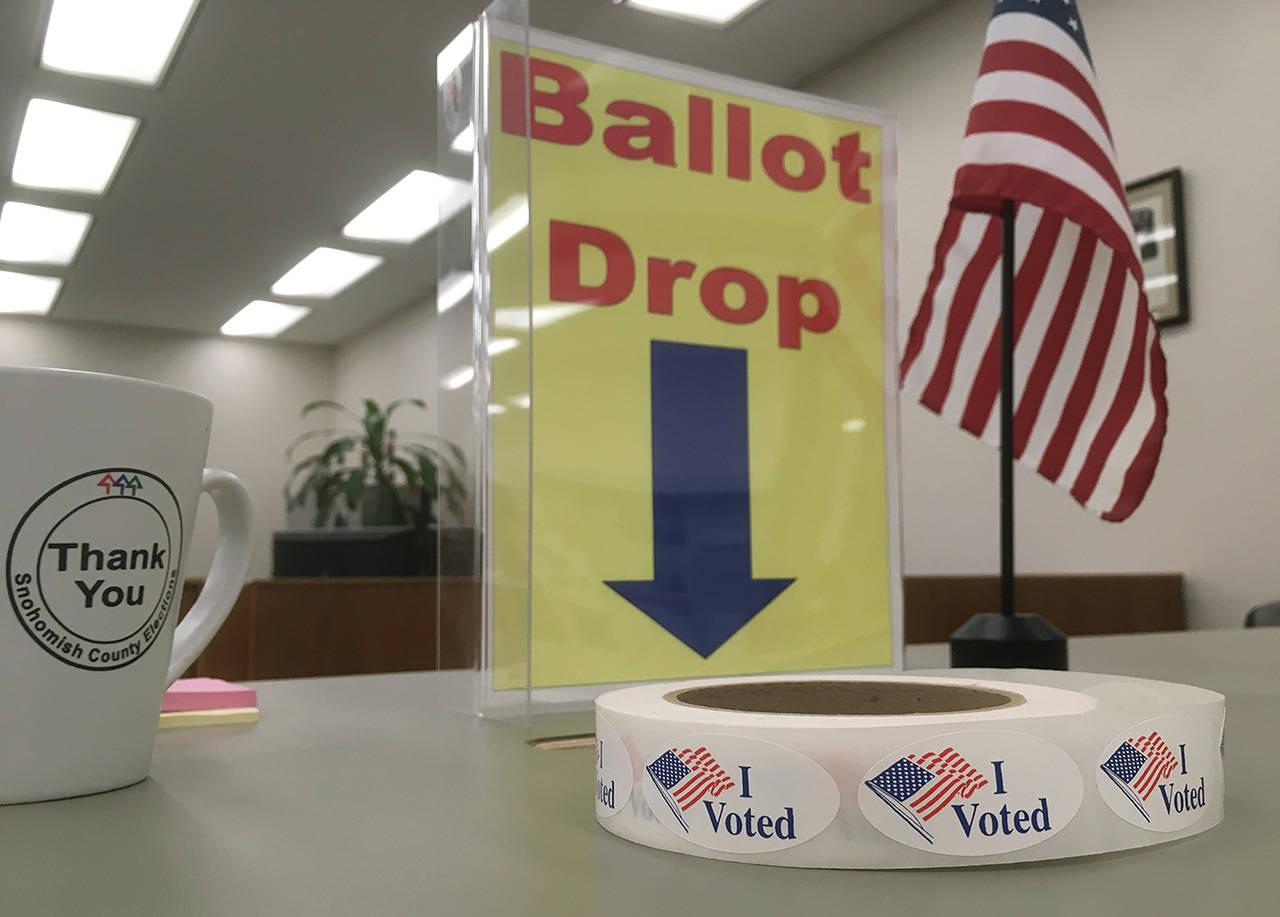By The Herald Editorial Board
Maybe saving the cost of a stamp can make a difference.
While Washington state voters’ participation in the Aug. 7 primary won’t set any records — of a total 4.3 million ballots sent to registered voters only 1.7 million (39.8 percent) were returned — it does represent a marked improvement over recent primary elections.
For last week’s election — the first where voters didn’t have to affix a stamp to mail in their ballot — 36.9 percent of ballots in Snohomish County were returned by mail or to a ballot drop box. The return rate in Island County was even higher at 48.6 percent.
Compare those numbers to the last midterm primary in 2014, where turnout had dropped to 31.2 percent statewide, with just 25.9 percent of Snohomish County voters returning ballots and 37 percent in Island County voting.
And the numbers are vastly improved over last year, an off-year primary for city and other local elections. Statewide turnout strained to get above 18 percent, with only 16.8 percent voting in Snohomish County, even with several cities electing mayors and city council members, including Everett.
With this year’s primary, ballot participation returned to levels last seen in the 2010 primary election: nearly 41 percent statewide, 39 percent in Snohomish County and 53 percent in Island County.
State and county election officials aren’t likely to be shouting from rooftops over last week’s numbers, but they are an improvement after years of steady decline. Doubtless, there is greater public interest in this year’s congressional midterm elections as motivated Democratic Party supporters — in response to the Trump presidency — seek to wrest the House and possibly even the Senate from Republican control.
But the primary numbers argue for the state to continue its experiment to pay for ballot postage, part of a package of recent changes made to encourage voter registration and participation.
In May, following a unilateral decision by the King County Council to pay for ballot postage, the state’s top election official, Secretary of State Kim Wyman, requested that Gov. Jay Inslee find funding to extend the free ballot postage to all state voters. Inslee released $2 million in emergency funds to reimburse county election departments for the Aug. 7 primary and the Nov. 6 general election.
After that, however, it will be up to next year’s Legislature to allocate the funding to make the change permanent. Even recognizing that more than free postage helped boost voter participation last week, lawmakers should pick up the postage tab for good and continue other efforts to encourage voting.
Wyman and lawmakers have proposed and adopted several changes this year that should help continue to build on last week’s results. Among them:
The Future Voters Act, which will take effect in July 2019, will allow 16- and 17-year-olds to enroll ahead of their 18th birthdays, when they will be eligible to vote. Those teens will be able to enroll at registration events in their high school classrooms as part of Temperance and Good Citizenship each year in mid-January.
Automatic voter registration adds citizens to the voting rolls when they apply for an enhanced driver’s license or ID card, which require proof of citizenship.
And those eligible to vote will be allowed to register up to the day of an election, after June 30, 2019, by personally appearing at the county election office. Initially, same-day voters will cast a provisional ballot, but the state is working to complete a $3.6 million upgrade of its voter database by December 2019 that will allow for a conventional ballot.
That and more may help turn around the decline in voter participation.
As with leading a horse to water, lawmakers and election officials can get ballots in the hands of voters and make it a simple matter of putting the ballot in the mailbox, but the acts of making decisions and marking ballots — as they must be — are up to each voter.
About 2.6 million registered voters in the state can ask themselves why they didn’t last Tuesday.
Talk to us
> Give us your news tips.
> Send us a letter to the editor.
> More Herald contact information.

























